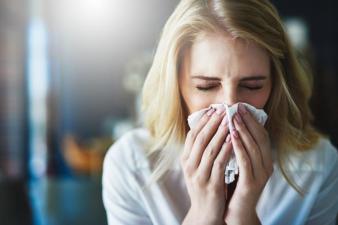- Managing your Practice
-
- Your Benefits
-

Introducing the ultimate Club MD experience
From work to play, and everything in between, we provide you with access to hundreds of deals from recognizable, best-in-class brands, elevating every facet of your life – from practice supports to entertainment, restaurants, electronics, travel, health and wellness, and more. Your Club MD membership ensures that these deals are exclusive to you, eliminating the need to search or negotiate.
Welcome to the ultimate Club MD experience. Your membership, your choices, your journey.
-
- Advocacy & Policy
-
- Collaboration
- News & Events
-

Stay Informed
Stay up to date with important information that impacts the profession and your practice. Doctors of BC provides a range of newsletters that target areas of interest to you.
Subscribe to the President's Letter
Subscribe to Newsletters
-
- About Us
-

Spring is in the air – Allergy sufferers hit hard
March 28, 2019
Together for Health
 It’s officially Spring, and if you’ve been sniffling and sneezing lately there’s a good reason why. Allergy season is here, and it’s come with a vengeance.
It’s officially Spring, and if you’ve been sniffling and sneezing lately there’s a good reason why. Allergy season is here, and it’s come with a vengeance.
According to the latest pollen samples, tree pollen counts are higher than normal triggering allergies and allergy symptoms such as coughing, sneezing, and itchy eyes. If you suffer from allergies, you should proactively start taking allergy medication since it typically takes a couple of weeks to become fully effective. There are also several steps you can take to help reduce your exposure to pollen:
- Keep your house and car windows closed.
- Limit the amount of time you spend outside when pollen counts are high (during midday and afternoon).
- Wear a pollen mask or dust mask when mowing the lawn, and limit your mowing if possible.
- Rinse your eyes with cool water or saline eye drops after being outdoors to remove clinging pollen.
Allergy sufferers can also keep an eye on the Weather Network, which tracks the amount of pollen in the air by city, and gives a three-day pollen outlook. This can help you determine when pollen levels are lower and it is safe to be outdoors.
Distinguishing between allergy and cold symptoms is also important to ensure proper treatment. While there are many similarities between the two, there are some key ways to tell which are cold and which are allergy symptoms.
- Seasonal allergies cause itchy watery eyes and a runny nose, and can last for weeks or as long as contact with the allergen continues.
- A cold also causes itchy watery eyes and a runny nose, but may also include aches and pains, a sore throat, and perhaps a fever and chills that generally lasts one to two weeks.
There are many common treatments for allergies including antihistamines, decongestants, sinus rinses, nasal sprays, or eye drops. But if your symptoms are severe and antihistamines aren't helping, visit your family doctor or health care provider. There may be another diagnosis or other treatments may be needed as some allergies can be overcome through desensitization treatment.
More information on allergies can be found here.
Media stories on this topic:
CBC News – Spring has sprung but at what cost? Peak allergy season hits Vancouver
The Weather Network – Is it allergies or a cold? How to tell, and how to treat it




